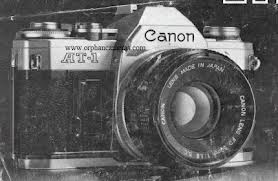Type “Hoarding is” into Google and what do you see?
- Hoarding is a mental illness
- Hoarding is a disease
- Hoarding is a sin
The notion of hoarding money, whether it be US$ Cash, Gold, or Bitcoin is powerfully misconstrued to shame wealthy people into ‘sharing’.
This is an uncommon conversation to look into the relationship between wealth and hoarding money. We’ll focus our efforts on hoarding Bitcoin, since it is on many media pundits’ minds.
Is money a store of wealth or a means of trade?
Yes. Money is the capacity to transact. So any store of wealth is a future means of trade. Whether one desires to transact immediately now, soon, next week, month, year, decade, upon death—what does it matter? The continuum of time between now and forever allows us no criteria to judge how soon someone must intend to spend their money.
This is obvious and also will not assuage the zealots against riches.
They will still accuse the wealthy of hoarding. They will say that as long as there is a limited supply of something and you have more than your share, well you are depriving the people that have less of what they might need.
This (il)logical sleight of hand can betray us if we don’t get some notions straight.
If we allow that whether ‘money’ is cash, gold, credit in a bank ledger, or maybe Bitcoin, we will find that we have the same sort of relationship with all four forms of money.
Of these four, only one has physical uses other than monetary uses: gold (unless you are propping up your wobbly table leg with a pile of dollar bills). Easy research will reveal that the vast majority of gold is ‘hoarded’. Oh My! This is mental illness, disease, or a sin!
The point is that anything that is used primarily to store money is considered most useful as money and therefore, no one is deprived of food, shelter, clothing, hygiene, sanitation, medical care, etc. by someone else having some form of money.
So, whether one finds gold, get’s paid in cash by the government, has more credit in their bank ledger, or accepts Bitcoin—none of these acts does anything whatsoever to anyone else on their own.
It is only because other people value these forms of money that they will act to try to get that money and essentially trade their labor, time, goods, and other forms of money for it.
Why should Paul Krugman care if I trade my USD for Bitcoin?
From his point of view, I have just ‘dis-hoarded’ the only form of money that he recognizes as valuable and have given it to someone else! Yeah! He should be cheering. But he is not. Hmmmmmm.
Similarly, Paul is worried that on some foreign currency exchange domiciled in Japan, some people traded in USD for fewer BTC than last week. (The price of BTC rose.) He fails to note that only a tiny fraction of all of the Bitcoin is being traded on these exchanges, so even if he cared at all, it would be invalid to conclude that all people everywhere who ‘own’ Bitcoin also place the same value on BTC vs. USD.
The marginal value of a trade does not determine the value for the whole market. Even if 100,000 people make the same trade it does not determine the value for all 7 billion inhabitants of the earth. So, this is false, wrong, ineffective, powerless, irrelevant, etc.
The same principle applies to any good, service, or money that is traded. So what are we left with?
Individuals are free to value any two things for whatever they judge is in their best interest. And they may be wrong and who can tell them accurately otherwise?
Hoarding is good for society.
If hoarding is really just a moving target for how long and how much of something that one owns, and they are saving it for the future, what is the illness, sin, or wrong in that? Mr. Krugman must allow that all forms of money can be infinitely divided so that there is never a real shortage of ‘currency’. This applies to gold, USD, credit, and Bitcoin.
In Bitcoin’s case there are presently 1.1036 Quadrillion satoshis in existence or about 157,657 satoshis for every one of the 7 Billion people on planet earth now. For all practical purposes, this should be enough currency to transact for quite some time. And it can be further subdivided if need arises.
So, if something new is created, such as Bitcoin, and it is hoarded, what did it take away from anyone else? Nothing. In fact somebody was given something to get that Bitcoin. This is our answer.
The act of hoarding one form of money takes nothing from all other forms of money and in fact dis-hoards other money, making it more available to spend.
We haven’t solved the conundrum of where the increase in value in Bitcoin comes ‘from’—that seems to bother Keynesians endlessly.
We must also address the reason central banks ‘hoard’ gold while issuing ‘valuable’ fiat currency, and what ‘excess gold reserves’ mean. (hint: similar to excess Bitcoin reserves)


